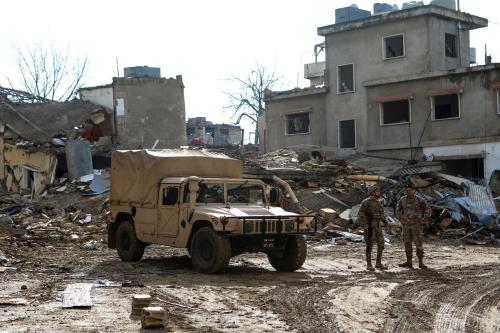The September 11 attacks on New York and Washington revealed a transatlantic alliance that, despite its frequently bitter rhetoric, rested on a foundation of shared values and mutual trust. America’s European allies responded to the attacks with unprecedented expressions of solidarity and generous offers of assistance. Indeed, the early amity occasioned by the attacks brought with it hopes of a new era of transatlantic relations in which the need to present a united front to a common and dangerous foe would make recent concerns about a “transatlantic culture gap” seem trivial. France, often the loudest critic of U.S. policy in Europe, lent its strong support to the war on terrorism—President Chirac promising soon after the attacks that France was “completely determined to fight by your side this new type of evil.” The French public and media similarly rallied to side of the United States, creating spontaneous shows of solidarity and sympathy across the French political spectrum. The Bush administration welcomed this support, continually stressing that the war on terrorism would be a long struggle requiring substantial support from U.S. allies and partners.
Only seven months in to that long struggle, however, these expressions of solidarity seem a distant memory. European and particularly French criticism of U.S. anti-terrorism policies has increased markedly of late, particularly since President Bush’s “axis of evil” speech in January 2002, which French foreign minister Hubert Védrine described as demonstrating a “simplistic” understanding of international affairs. Apparently, cracks are beginning to show in the edifice of the U.S.-led anti-terrorism coalition.
Indeed, according to the London Times, “Jacques Chirac has gone as far as any French President could to discard taboos on intelligence-sharing and military co-operation with the U.S.” France vigorously supported the invocation of NATO’s Article V mutual defense guarantee in September and U.S. proposals in the UN Security Council to legitimate a military strike on Afghanistan and to create international authorization to freeze the funds of terrorist organizations. In Europe, French law enforcement has been active in pursuing Al-Qa’eda cells in France and in cutting sources of terrorist financing. In December, French authorities arrested Ahmed Laidouini, a Frenchmen of Algerian descent, who is suspected of serving as a liaison between Al Qa’eda cells in Europe.
View full article.
The Brookings Institution is committed to quality, independence, and impact.
We are supported by a diverse array of funders. In line with our values and policies, each Brookings publication represents the sole views of its author(s).



Commentary
The Role of France in the War on Terrorism
May 14, 2002